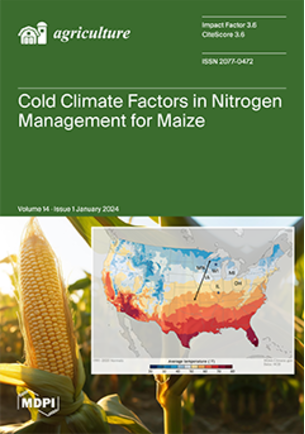Wolbachia Transinfection and Effect on the Biological Traits of Matsumuratettix hiroglyphicus (Matsumura), the Leafhopper Vector of Sugarcane White Leaf Disease
Q2 Agricultural and Biological Sciences
引用次数: 0
Abstract
The bacterial genus Wolbachia induces reproductive abnormalities in its insect host, including cytoplasmic incompatibility (CI), which causes embryonic death in the crossing of infected males and uninfected females. Hence, Wolbachia-based strategies are employed to control insect pests. However, Wolbachia does not naturally infect Matsumuratettix hiroglyphicus (Matsumura), the main vector of the phytoplasma causing the sugarcane white leaf (SCWL) disease. In this study, the wYfla Wolbachia strain, which induces strong CI in its original host, was microinjected into nymphs of M. hiroglyphicus. Molecular detection revealed that Wolbachia was successfully transinfected into the recipient host, with an infection frequency of 55–80% in up to eight generations after transinfection. Wolbachia exhibited no significant detrimental effects on the developmental time of the immature stages, adult emergences, and female longevity, whereas the lifespan of transinfected males was decreased. Reciprocal crossing revealed that Wolbachia infection did not affect the number of eggs laid per female. However, the hatching rate produced by the pairs between the transinfected males and naturally uninfected females significantly decreased. The evidence of Wolbachia transmitted through the generations tested and partial CI occurrence in transinfected M. hiroglyphicus highlights the possibility of the future development of Wolbachia-based strategies for controlling the vector of SCWL.Wolbachia 转染及其对甘蔗白叶枯病叶蝉传播媒介 Matsumuratettix hiroglyphicus (Matsumura) 生物性状的影响
沃尔巴克氏菌属可诱导昆虫宿主出现生殖异常,包括细胞质不相容(CI),导致受感染的雄虫与未受感染的雌虫杂交后胚胎死亡。因此,人们采用了基于沃尔巴克氏菌的策略来控制害虫。然而,Wolbachia 并不自然感染 Matsumuratettix hiroglyphicus (Matsumura),而 Matsumuratettix hiroglyphicus (Matsumura)是导致甘蔗白叶病(SCWL)的植原体的主要媒介。在这项研究中,wYfla Wolbachia 菌株可诱导原宿主产生强烈的 CI。分子检测显示,沃尔巴克氏体成功转染到了受体宿主中,转染后八代内的感染率高达 55-80%。沃尔巴克氏菌对幼虫的发育时间、成虫的出现和雌虫的寿命没有明显的不利影响,而转染雄虫的寿命则有所下降。互交结果表明,沃尔巴克氏体感染不会影响每只雌虫的产卵量。然而,转染雄性与自然未感染雌性配对产生的孵化率明显下降。在测试的世代中传播沃尔巴克氏体的证据,以及转染的喜蛙甲中出现的部分 CI,都突出表明了未来开发基于沃尔巴克氏体的策略来控制 SCWL 病媒的可能性。
本文章由计算机程序翻译,如有差异,请以英文原文为准。
求助全文
约1分钟内获得全文
求助全文
来源期刊

Agriculture
Agricultural and Biological Sciences-Horticulture
CiteScore
1.90
自引率
0.00%
发文量
4
审稿时长
11 weeks
期刊介绍:
The Agriculture (Poľnohospodárstvo) is a peer-reviewed international journal that publishes mainly original research papers. The journal examines various aspects of research and is devoted to the publication of papers dealing with the following subjects: plant nutrition, protection, breeding, genetics and biotechnology, quality of plant products, grassland, mountain agriculture and environment, soil science and conservation, mechanization and economics of plant production and other spheres of plant science. Journal is published 4 times per year.
 求助内容:
求助内容: 应助结果提醒方式:
应助结果提醒方式:


